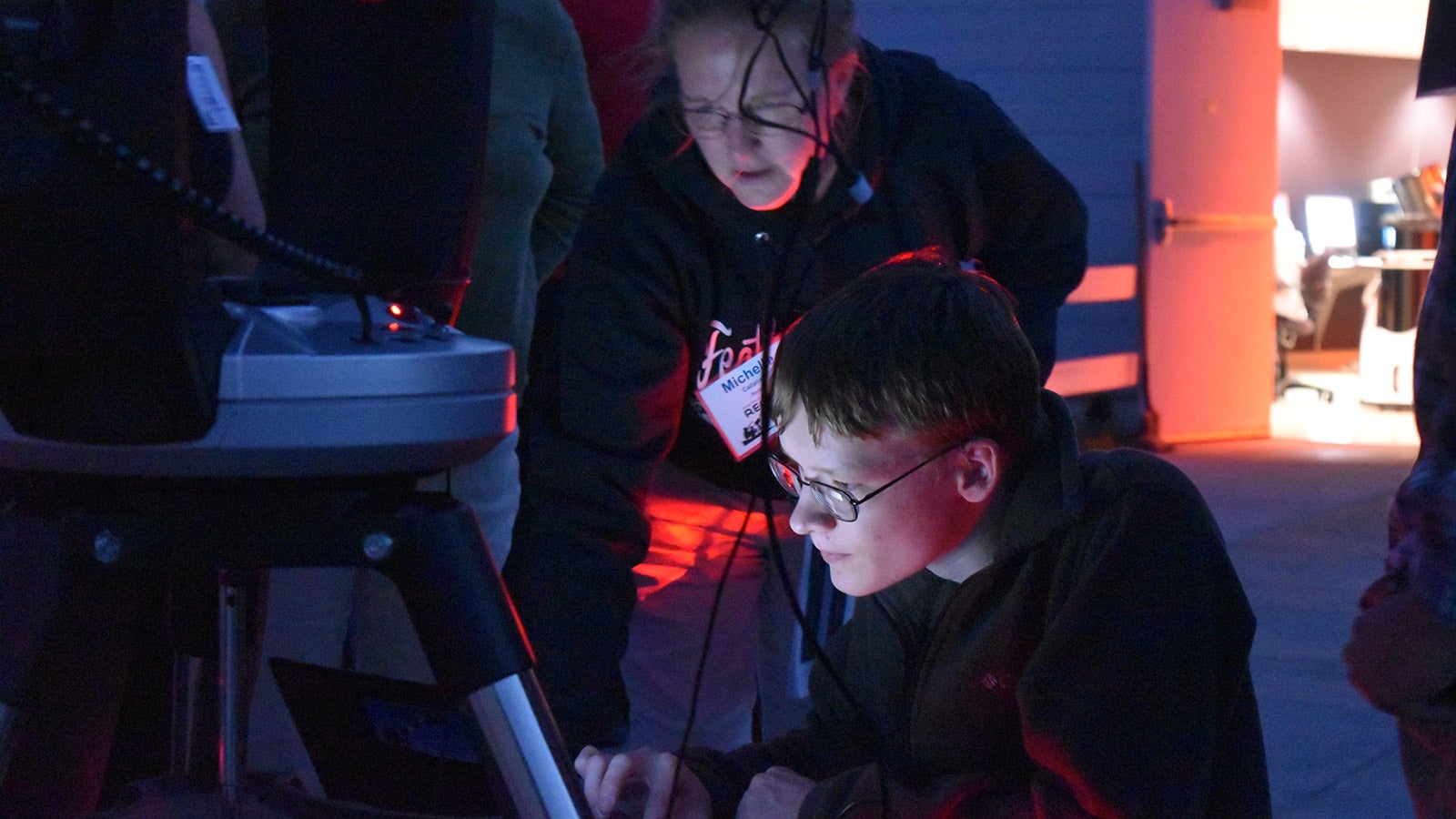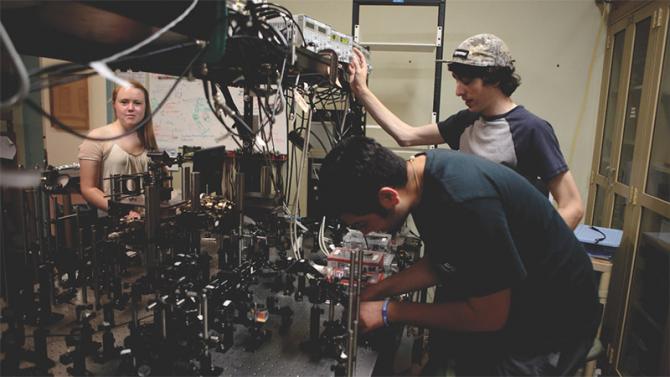
If you have ever wondered scientifically, "why" something is the way it is, or "how" can something exist or behave the way it does, then you've entered the realm of physics. Physics is the most fundamental of all sciences, and is the study of nature that is all around us. Physicists try to understand the most basic laws that govern the behavior of nature.
The physics curriculum provides a solid grounding in fundamental courses in mechanics, electromagnetism, thermal physics and quantum mechanics. Regularly offered elective courses such as optics, solid-state physics, particle physics, advanced optics, lasers and non-linear dynamics allow you to pursue your personal interests.
Physics offers a diverse selection of labs:
The astronomy minor allows you to learn about and analyze the phenomena and processes of outer space. A minor in astronomy provides a background for graduate-level studies in astronomy or work in related fields.
Geology is the study of the earth and the forces that shape it. The geology minor is offered jointly with the Natural Resources Management and Environmental Sciences Department.
The physics minor provides non-majors the opportunity to build on introductory physics courses.

Physics allows you to study the forces that shape the fabric of nature and learn what the universe is made of and how it works.
You will receive a solid grounding in fundamental physics and have access to a wide range of elective courses including optics, particle and solid-state physics, nonlinear dynamics, astronomy and geophysics. Running experiments and engaging in faculty-led research develops your quantitative critical thinking skills, and you will gain the ability to use data to test and evaluate models, explanations and methods. Cal Poly offers both B.A. and B.S. degrees in physics, depending on your future career goals.
In lab-based classes and with faculty-led research opportunities, you will learn to think like a physicist. Explore accelerator physics at CERN, or learn about the frontiers of space and time while searching for extrasolar planets at world-renowned observatories. Explore the mind-bending consequences of Einstein's theory of gravity and curved space-time, or unlock the mysteries of our awesome earth with field research opportunities in geological structure and seismology around California. Become a science educator and make a difference in propelling P-12 STEM education in the 21st century. At Cal Poly, you are part of the process of creating new scientific knowledge.

Use a magneto-optical atom trap and try to be the first in the world to transfer these atoms to a pure light trap formed behind a pinhole.
Our graduates use the critical thinking skills they have developed in integrating physics, mathematics, computing and technology to pursue a wide variety of career paths that include graduate studies, technical industry jobs and high school teaching.